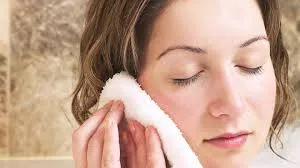
Not all ear infections need antibiotics cold and warm compresses and changing up your sleep position can help Your kiddo is tugging their ear. Again. Or maybe you’re the one dealing with ear pain, pressure or muffled hearing.
No matter the age, ear infections are one of those illnesses that have you searching for relief in all kinds of places. The good news is that most ear infections clear up on their own. That’s right. Not all ear infections need antibiotics to clear them up.
And even better news, there are some steps you can take at home to relieve the discomfort.
“There are several home remedies for earaches,” says otolaryngologist Anh Nguyen-Huynh, MD. “I suggest trying home remedies for the first two or three days if symptoms are mild.”
Any longer than that and it’s time to consider seeing a healthcare provider to see if antibiotics or other treatments are needed.
Dr. Nguyen-Huynh shares some go-to home remedies for ear infections that work. And just as important what to avoid.
Pain relievers like ibuprofen (Advil® or Motrin®) and acetaminophen (Tylenol®) work as advertised they can help take the edge off pain, including pain from an ear infection.
You may find that you benefit even more from alternating doses of ibuprofen and acetaminophen to take advantage of the pain-relieving effects of each.
If you’re taking other medications for other symptoms associated with your ear infection, like a decongestant, be careful about mixing medications. Some medications already include a pain reliever. So, taking more on top of that can be dangerous.
Read your medication labels carefully to make sure you’re using the proper dosage.
Change up your sleep position
Getting plenty of sleep is important to managing any illness. And ear infections are no different.
But how you sleep can affect ear pain.
If your ear pain is limited to one ear, try to sleep on your other side. Try propping up your head on two or more pillows, so your affected ear is higher than the rest of your body. That will help encourage fluid to drain. (Yay, gravity!)
If both your ears are affected, you may find that sleeping on your back may be more comfortable.
Neck exercises
When you have an ear infection or earache, the muscles around your ear canal can swell. That adds more pressure to your ears and more pain.
Help relieve those tense muscles and ease the pressure by giving your neck a little workout if it feels good.
Try:
- Rotating your head in slow circles.
- Dropping one ear toward your shoulder. Then, try it on the other side.
- Shrugging your shoulders up and down.
- Gently opening your mouth as wide as is comfortable and holding for a few seconds.
Ginger
With its anti-inflammatory properties, ginger is a natural remedy that may help reduce swelling.
“Some people find relief from ear pain by applying a few drops of ginger juice around their outer ear,” Dr. Nguyen-Huynh notes. “Be careful, though, not to allow it to go into the actual ear canal.”
Hydrogen peroxide
A few drops of hydrogen peroxide can help clean buildup and germs from your ears.
Dr. Nguyen-Huynh also recommends avoiding over-the-counter numbing drops, which use benzocaine to numb the pain and antipyrine to help to decrease the pain and inflammation. “The effect is very brief, and sometimes it does the opposite and stings the ear.”
When to see a healthcare provider
Home remedies may do the trick for some ear infections. But they may not always be effective.
Dr. Nguyen-Huynh advises seeing a healthcare provider for an ear infection if:
- Your symptoms remain after two or three days, even if you’ve tried over-the-counter or home remedies.
- Your ear is very painful or you have other symptoms that bother you.
- You have a fever over 104 degrees Fahrenheit (40 degrees Celsius). Or your child has a worrying fever.
Some ear infections are more stubborn than others and may need a course of antibiotics to get you feeling better.
And sometimes, what you think to be an ear infection is actually an ache that comes from something other than an infection altogether.
Other common conditions like temporomandibular joint dysfunction (TMJ), can masquerade as earache infections,” Dr. Nguyen-Huynh says. “If you have ear pain along with trouble chewing, talking or yawning, then you should see a dentist or TMJ expert to be sure you’re treating the right condition.”
No one wants to deal with ear infection pain any longer than they have to. So, try recommended home remedies. Get rest. Drink plenty of fluids. And see a healthcare provider if you’re not getting better.













































